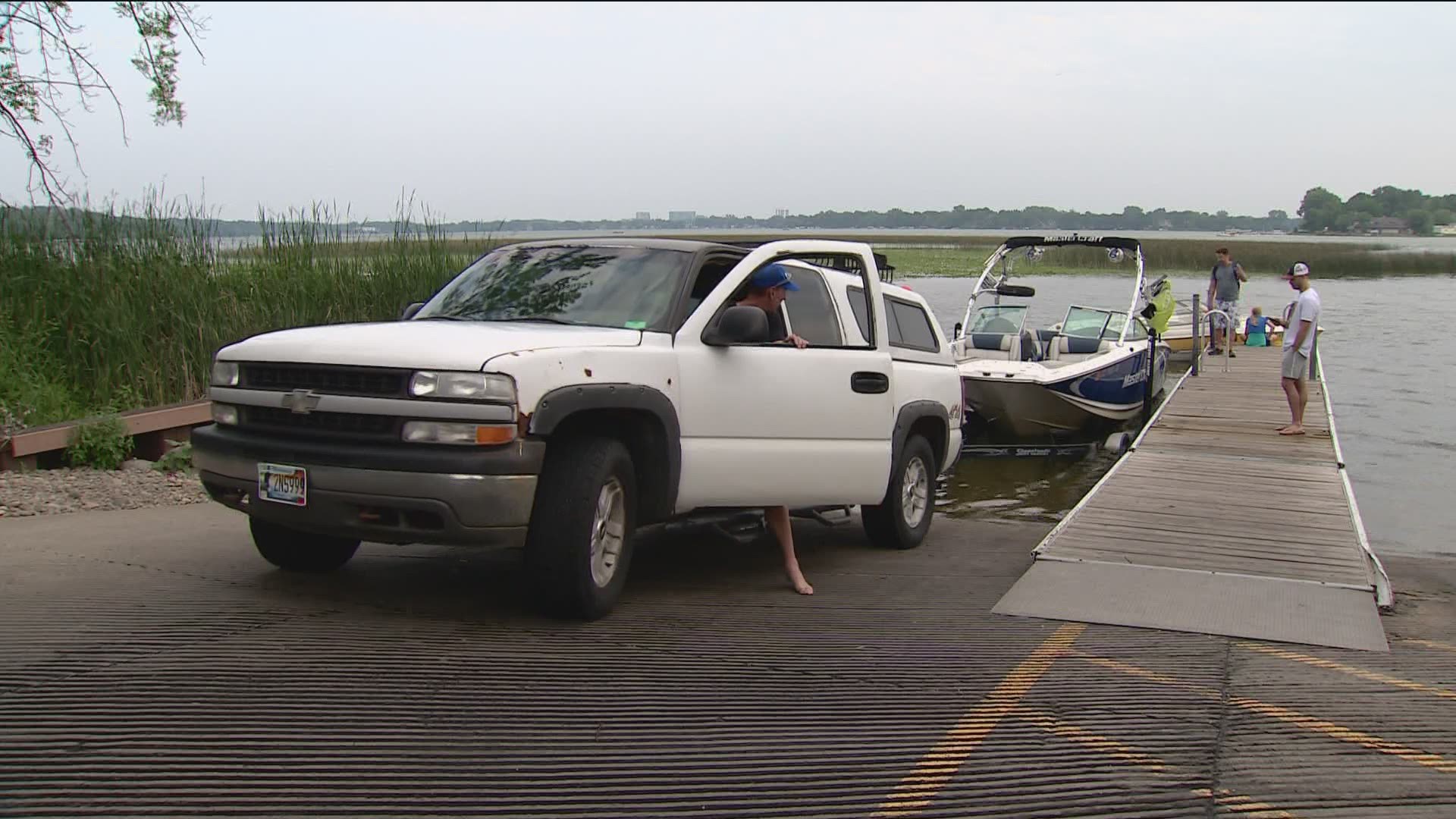MEDICINE LAKE, Minn. — The summer drought is taking a toll on lakes and rivers across the state of Minnesota as water levels continue to drop.
Along the shores of Medicine Lake, Kaila Stark and her daughter Lily found themselves seated on the waterfront Thursday afternoon, with a view that was a little hard to believe.
"It is a lot lower than it usually is," said Stark who visits the lake every summer.
This is the case for many bodies of water across the state, from the northern region to the southern region, as more than 70% of the state is facing an extreme or severe drought.
"I walked out a little past the buoys and I still wasn’t able to get all the way under," said Stark's daughter Lily.
Lower than usual water levels are proving to be problematic for boaters like Mike Kratochwill who makes a living on the water teaching kiteboarding during the summer months.
"Right out halfway through here and these buoys it's quite shallow, so I typically have to walk my boat out at this point," said Kratochwill, owner of Lakawa Board and Shop. He went on to say, "if it gets much lower I won't actually be able to use this lake.”
While these lower water levels may not be favorable for recreational purposes, and can contribute to killing off certain fish species due to low oxygen levels, leaders with the Minnesota DNR say these drought-like conditions are actually necessary.
"The DNR has some programs already in place that mimic natural drought because it is an important part of the ecosystem," said Tom Burri, a limnology consultant with the department.
Especially when it comes to preserving native vegetation.
"One of the real important aspects is reestablishing the aquatic ecosystem there by reinvigorating the plant systems along the shoreline and in the water," said Burri. He went on to say, "reestablishing that vegetation reduces erosion on that shoreline system too.”
In the meantime, DNR officials say it’s just a matter of waiting on mother nature to bring new life to the state’s most prized natural possessions.
"The lakes will rebound," said Burri.
DNR officials say they are watching the water levels across the state very closely and actually have crews that are out restoring some of the native plant beds as water levels continue to drop off.

